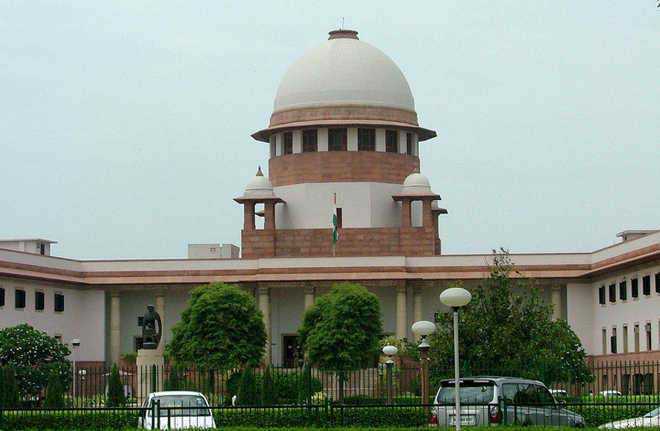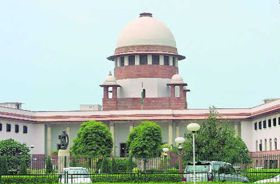
Photo for representation. PTI file
Satya Prakash
Tribune News Service
New Delhi, February 13
The Supreme Court has dismissed a petition seeking review of its Shaheen Bagh verdict that said roads and public spaces can’t be blocked indefinitely and demonstrations had to be in designated places alone.
“The right to protest cannot be anytime and everywhere. There may be some spontaneous protests but in case of prolonged dissent or protest, there cannot be continued occupation of public places affecting the rights of others,” a three-judge Bench headed by Justice SK Kaul said.
“We have considered the earlier judicial pronouncements and recorded our opinion that the Constitutional scheme comes with a right to protest and express dissent but with an obligation to have certain duties,” said the Bench which also included Justice Aniruddha Bose and Justice Krishna Murari.
Maintaining that “democracy and dissent go hand in hand”, the Supreme Court had on October 7 last year ruled that roads and public spaces can’t be blocked indefinitely and demonstrations expressing dissent have to be in designated places alone.
Deciding petitions seeking removal of protesters against the Citizenship Amendment Act (CAA) from Shaheen Bagh in Delhi, the top court had said, “We have…no hesitation in concluding that such kind of occupation of public ways, whether at the site in question or anywhere else for protests is not acceptable and the administration ought to take action to keep the areas clear of encroachments or obstructions.”
However, review petitioner Kaniz Fatima and 11 others Shaheen Bagh protesters had requested the top court to reconsider its ruling, saying the judgment “appears to be giving way to an unrestricted sanction to the police to take action by misusing these observations.”
They had said, “Such observations may prove to be a license in the hands of the police to commit atrocities on legitimate voices of protest, especially the protesters coming from the vulnerable sections of the social strata. Again this aspect is an error of law apparent.”
Notified on January 10, the CAA relaxed norms for grant of Indian citizenship by naturalisation to Hindu, Sikh, Christian, Buddhist and Jain and Parsi victims of religious persecution from Pakistan, Afghanistan and Bangladesh who came to India before December 31, 2014. The top court had on January 22 refused to stay the operation of CAA and NPR.
The protesters, who had blocked the Kalindi Kunj-Shaheen Bagh stretch, including the Okhla underpass in Delhi since December 15, 2019, were removed only on March 24 after the COVID-19 lockdown was enforced. But the top court had chosen to keep the matter pending to clarify the legal position on the issue.
The court had also faulted the authorities for not taking any decision, saying, “Unfortunately, despite a lapse of a considerable period of time, there was neither any negotiation nor any action by the administration, thus warranting our intervention.”
Join Whatsapp Channel of The Tribune for latest updates.



























